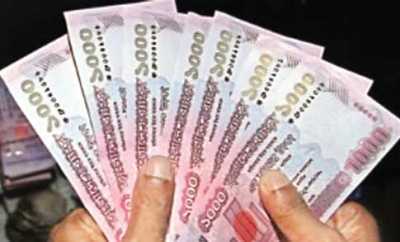News >> Business
BB unveils monetary policy
 26 Jul, 2013
26 Jul, 2013
The central bank Thursday announced the monetary policy statement (MPS) for the first half of the current 2013-14 fiscal with the private-sector credit growth scaled down by 3 percentage point compared to the previous policy stance.
In its monetary recipe, the Bangladesh Bank (BB) also targeted to bring the average inflation down to 7 percent using the 1995/96 base, or 6.0-6.5 percent using the 2005/06 base, while ensuring that credit growth is sufficient to stimulate inclusive economic growth.
The latest half-yearly policy, which the central bank termed a ‘balanced and flexible’ one, has decided to lower the private-sector credit-growth target to 15.5 percent in the first half (July-December) of the current fiscal from 18.5 percent in the January-June period of the immediate-past FY.
Inflation stood at 7.70 percent at the end of June this year, slightly higher than the target of 7.5 percent the central bank had set for the January-June period of the immediate past fiscal.
The latest monetary policy also assumed that government borrowing from the banking sector will remain around the FY14 budgetary figure of Tk 260 billion.
According to the policy statement, credit growth to the private sector stood at only 13.6 percent at the end of May this year, accumulating 11.4 percent in domestic and 2.2 percent in external sources. During the corresponding period of 2011-12 fiscal, private sector credit growth reached 19.7 percent.
Bangladesh Bank (BB) governor Dr Atiur Rahman, accompanied by deputy governors, executives and economic and change-making advisors, announced the monetary policy at a crowded press conference held at the BB headquarters in the city.
The MPS projected that gross domestic product (GDP) growth is unlikely to be achieved more than 6.2 percent, which is an average rate in the last one decade. However, this forecast is contrary to the target of 7.2 percent set in the budget for the 2013-14 FY.
“I would like to say that it is a ‘balanced and flexible’ monetary policy under which Bangladesh Bank is ready to face any situation relating to maintaining consistency with the fiscal targets, ensuring credit growth to private sector and controlling inflation,” said Dr Rahman, while answering to reporters’ questions.
The BB governor also observed that reining in inflation will be a challenge in the stipulated time as potential risks lie with upcoming political events centering the next parliamentary polls.
“Supply-side disruption caused by political volatility might affect the inflation scenario; and in that case, inflation may not be possible to control at the targeted-level,” he said.
While replying to a question on whether headline inflation in the neighboring countries would affect the country’s economy, Atiur said, “Our economy is linked with neighboring economies.”
Regarding the contrary over GDP growth, the BB governor said the BB’s current forecast is that the output growth is unlikely to deviate significantly from the last ten years’ average of 6.2 percent due to a number of factors including global growth, domestic and foreign investment, exports, imports and remittance.
“However, we would like to walk on two legs to facilitate GDP growth and control inflation simultaneously,” he said.
The monetary policy has set the broad money (M2) and reserve money growth at 17.2 percent and 15.5 percent respectively for the first half of FY 14.
The BB governor in his speech said the rate of private sector credit growth would be 15.5 percent by December while it will be 16.5 percent by June 2014, which is consistent with the GDP growth target.
He said BB would closely monitor all the developments in the capital market in order to ensure flourish of the market and execute the stimulus packets for the small traders and stock-brokers.
He said the BB’s proposal of credit support for the small traders of the share market is now awaiting the approval of the finance ministry and it might get approval by next week.
The governor said the BB as the financial sector regulator would not compromise with banks regarding any misrule, unethical practice and or irregularities in contrast with the central bank guidelines.
He said banks are doing businesses with the money deposited by clients and no bank has any authority to do anything it wants with the money. “They (Banks) must comply with central bank rules and guidelines while investing money. It is the peoples’ money and central bank would act for protecting the public interest,” Dr Rahman said.
He said the central bank will enforce all of its instruments to make banks accountable for the deposits.
While commenting on recapitalisation of state-run banks, the BB governor underscored the need for proper evaluation of progress in good governance in managements of banks before finally going for re-capitalisation.
The governor said the BB has signed memorandum of understanding (MoU) with all the state-owned commercial and specialised banks to monitor loans and advances approval procedures and end-use of the loans by clients.
To attain the goal, Bangladesh Bank has implemented digitisation in the bank supervision system under which online statements are being collected from banks instantly, he added.
The governor said effective transmission of monetary policy requires strengthening credit and debt markets and this will remain a key focus in the MPS for the FY 14. Besides, the policy also aims to preserve the country’s external sector stability by facilitating a market-based exchange rate.
BB Deputy Governors—Abu Hena Razee Hassan and Shitangshu Kumar Sur Chwodhury, Chief Economic Advisor Dr Hassan Zaman and Change-making Advisor Allah Malik Kazemi replied to queries from reporters during the function.
Source: daily sun

